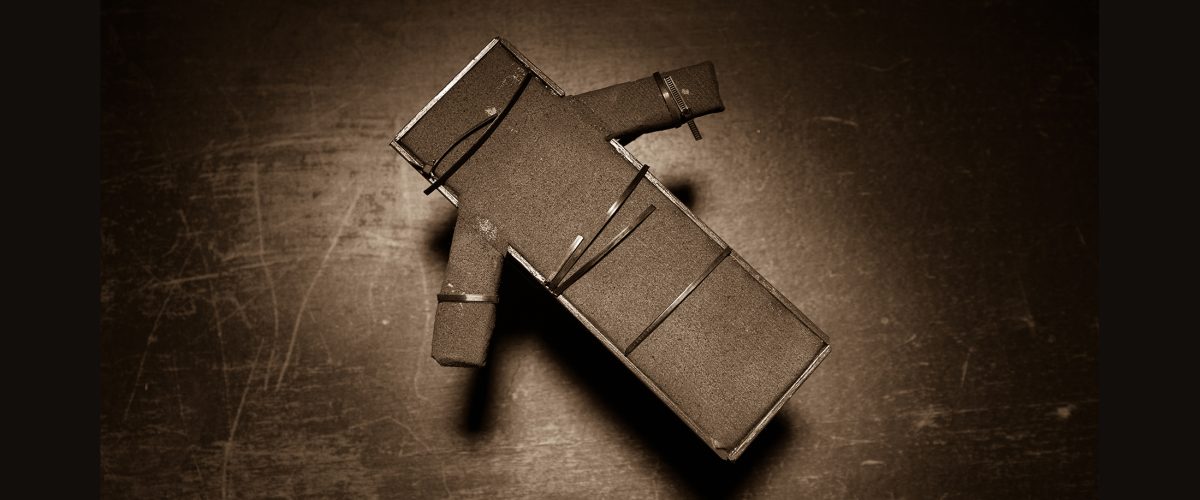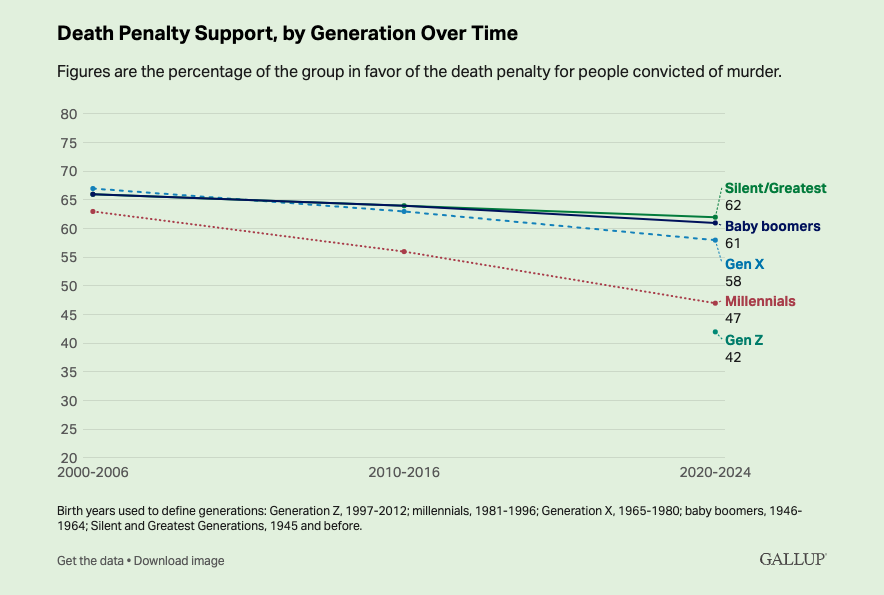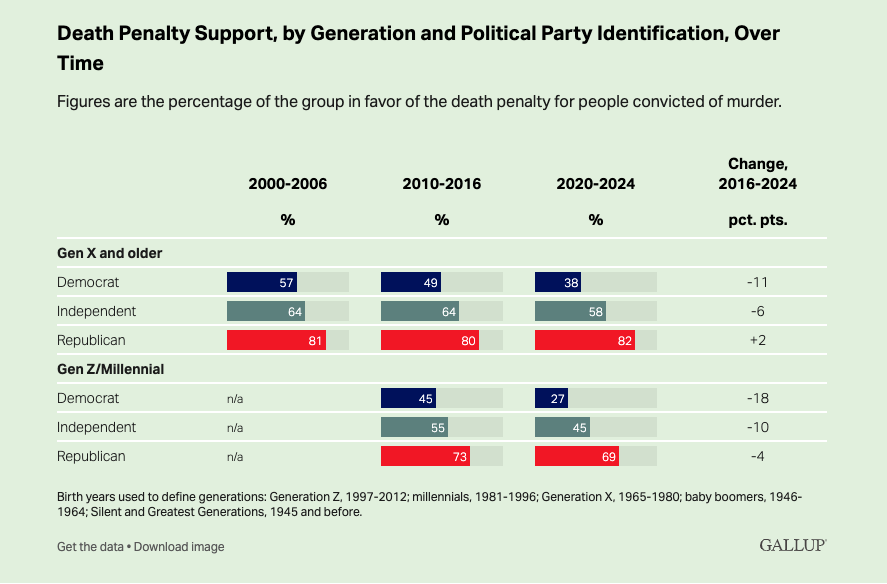Overall support for the death penalty has dropped to 1970s levels due in large part to disapproving younger adults, Gallup reported in a new study.
Fewer than half the Millennial and Gen Z generations — namely all those born after 1980 — favor capital punishment, while about 60% of older respondents approve of state-sanctioned executions, Gallup reported.
The study relied on aggregated data collected from three time periods of Gallup’s annual crime survey, ranging from 2000 to 2024. During that span, support for the death penalty was measured at 66% in 2006, 61% in 2016 and 54% this year.
“The last period reflects the lowest levels of death penalty support Gallup has measured since a 50% reading in 1972,” the report explains.
Just as Millennials were entering adulthood 20 years ago, death penalty approval among all generations was within 3 percentage points of the 66% national average. But from there the real drop off began for Millennials.
“Between 2010 and 2016, support among adult Millennials had fallen from 63% to 56%, while it dipped only slightly, to 63% or 64%, among the older generations,” the report notes.
Millennials showed even less support for capital punishment during the most recent survey period, decreasing an additional 9 points to 47% favoring the practice.
Support for capital punishment has dropped not only among Millennials but also among Gen X, Baby Boomers and the Silent Generation.
Support for capital punishment has dropped not only among Millennials but also among Gen X, Baby Boomers and the Silent Generation.
But it is the lagging support of Gen Z that continues to bring down the national averages, Gallup finds.
“Younger generations’ exposure to the issue has come when many states had moratoriums on the death penalty or repealed laws that allowed capital punishment,” the report says. “These efforts were often motivated by cases in which Death Row inmates were later found innocent of the crime for which they were convicted.”
According to the Death Penalty Research Center, 200 Death Row inmates have been exonerated across the nation since capital punishment was reinstated by the U.S. Supreme Court in 1973, led by Florida (30), Illinois (22), Texas (18) and Pennsylvania (13).
The racial imbalance of capital convictions and executions has been another knock on the death penalty. The center cited studies showing Black defendants are more likely to be condemned for crimes than white defendants in similar cases, and that conviction rates for Black defendants are higher when victims were white and lower for white defendants whose victims were Black.
Nor has capital punishment been the deterrent its proponents claim. For example, murder rates are higher in the American South, where more than 80% of executions happen. In the Northeast, where less than 0.5% of all executions take place, the lowest murder rates are found.
More than 20 states have abolished capital punishment since 2004, including New York (2007), Washington (2018) and Virginia (2021). Another six, including Tennessee, Arizona and California, have gubernatorial holds on executions, leaving 27 states with the death penalty and 23 without it, according to DPIC.
But what has remained steady during the past 25 years is Republican support for the death penalty, Gallup found. “The change in attitudes by generational group is thus seen more among political independents and, especially, Democrats.”
“While older Republicans’ views have not changed to a meaningful degree, there has been a slight decline in death penalty support over the past decade among younger Republicans, from 73% to 69%,” the report says.
Double-digit gaps in capital punishment support now exist between people of different generations in the same party, Gallup added. During the latest period, 38% of older Democrats and 82% of older Republicans favored executions, compared to 27% of younger Democrats and 69% of younger Republicans.
“Americans are now more divided on this issue than they have been since the late 1960s and early 1970s, when the death penalty was temporarily abolished in the United States,” the report says.
Related articles:
Abolitionist cites reasons to campaign against death penalty
Evangelicals could kill capital punishment system if they would, speakers declare
Opposition to death penalty gaining steam through broad coalition




